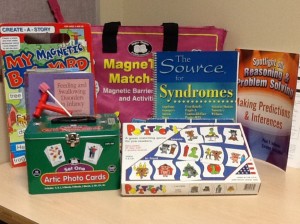As a Speech and Language Pathologist, I am writing this series in hopes to address concerns when it comes to your child’s speech and what to expect if you feel like your child might not be reaching their milestones. If you are just joining us, be sure to start with Part 1 right here.
This series on Speech and Language Development has finally come to an end. We’ve journeyed through the developmental stages of infants to four-year-olds. I’ve highlighted ways you as a parent can be working with your children to encourage and improve their speech along the way. And, as I’ve mentioned before, it is so important to remember that all kids develop at different speeds. That being said, there are definitely red flags that should not be swept under the rug when it comes to speech and language development. If you feel that your child is behind for his age, then I highly recommend addressing any concerns you have.
But first, let’s stop and take a look at some of my “rules” for approaching your child’s development:
- Trust your instincts about your child.
- Frequently talk to your child’s daycare worker or teacher about social interaction, level of communication, and/or intelligibility.
- Sign up for Speech and Language Screenings at school- many daycares offer a screening on a yearly basis for a minimal cost or address this with your pediatrician.
- Review milestone charts prior to visiting your doctor for well visits. These visits can be overwhelming and if you are prepared about developmental questions then you won’t have to recall skills on the spot.
- Request an evaluation referral sooner rather than later- early intervention is the key.
So, keeping all of that in mind, let’s say you notice a speech delay or your child’s teacher or pediatrician mentions it. What do you do? Where do you begin in addressing this issue?
The first step if you or your pediatrician notice speech or language delays in your child is requesting an evaluation. Needing an evaluation is not a scary thing nor is it a failure on your part as a parent. Some kids just need assistance to use their language from someone other than Mom/Dad. Once your evaluation is scheduled, here’s what to expect during the evaluation and follow-up therapy sessions.
Evaluation
- Review of medical, social, and developmental history.
- Age appropriate testing, which could be anything from an observation of play skills combined with parent interview, to formal testing with standardized tests.
- Explanation of findings and recommendations.
- Referrals to any other services that might benefit your child. (These might include occupational therapy, physical therapy, behavioral psychologist, ENT, and/or Neurology consults. Frequently, the later consults would be recommended following multiple sessions and discussions with your pediatrician. Remember that recommendations are not made on a whim.)
- Working one on one with a therapist. (You can read a little about the mindset of a therapist here.)

Therapy
- Individual goals will be established and addressed at each session.
- A home program will be provided (maybe not at 1st session) so that you can carryover goals at home.
- Individual vs Group therapy will be discussed.
- Type of therapy and materials used will be based on your child’s age and individual goals.
- In order for kids to participate, therapy does not always LOOK like therapy to the parent. A lot of it involves play!
- Remember there is always a purpose to what your therapist is doing. Sometimes “just talking” is addressing many goals that might not be obvious to the parent. If your child is in therapy and you have questions about the purpose of an activity, just ask your therapist. The best therapy parents are the ones that are involved in the therapy process.
At the end of the day, the most important thing is that your child is receiving the support and resources that they need to improve their speech and language skills. The best thing you can do as a mom is be proactive and not afraid to ask questions. You are your child’s greatest advocate and together, with therapists, doctors, and teachers, your child can make great strides in their speech development.
I hope you’ve enjoyed this series! If you need to catch up on Parts 1 – 4, click here.

















